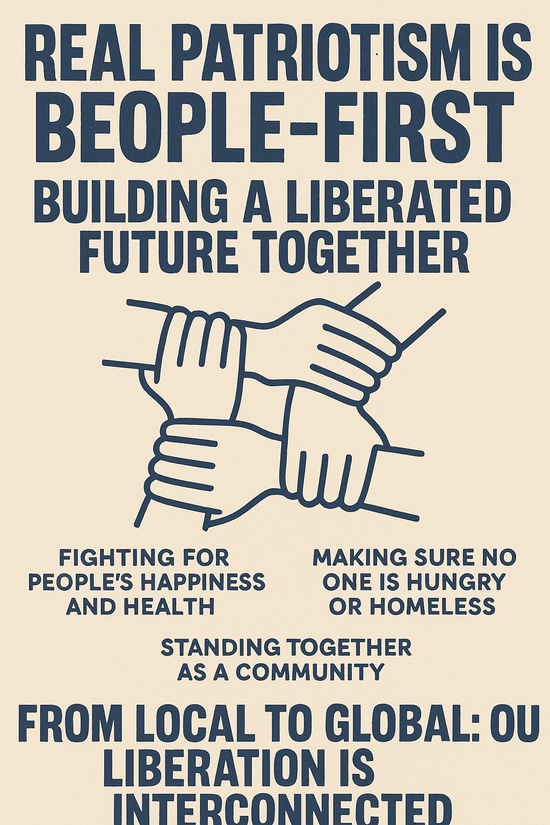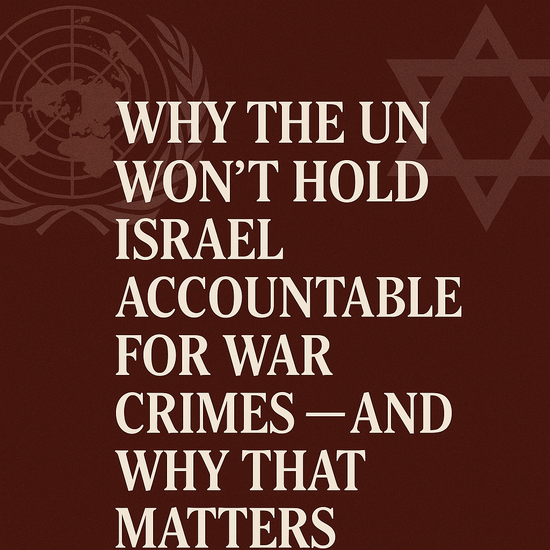A Nightmare Unfolding: What If Gaza’s Reality Happened in the West?
Imagine a crisp morning at a serene campsite near Niagara Falls. You can hear the rush of water in the distance, the laughter of families enjoying breakfast over a campfire. Or picture the tree-lined roads of Beaver Valley in the fall, glowing with reds and golds. Maybe it’s a busy Saturday at St. Jacobs Farmers’ Market, with the chatter of vendors and the scent of fresh bread in the air. Life is comfortable, predictable — safe.
Now imagine something terrible happens.
A devastating accident. A building collapses, trapping families beneath twisted metal and broken concrete. You’d expect sirens within minutes. Skilled paramedics rushing to the scene. Firefighters and search crews with excavators clearing debris. At the hospital, doctors would stand ready to receive the injured. Helicopters would fly in the most critical cases. Supplies would arrive quickly — blood, oxygen, pain relief. Lives would be saved.
But what if none of that came?
No Rescue, No Relief
Now imagine the ambulances are stuck at checkpoints. Armed soldiers block their passage. The firefighters are denied fuel for their trucks. Excavators — the very machines needed to lift the rubble — are not permitted through. Civilians, desperate to save their neighbors, claw through the wreckage with their bare hands. Time slips away.
This is Gaza’s reality.
The region is under a devastating blockade. Medical aid, food, water, and fuel are choked at crossings, held back under the pretext of security. Ambulances are targeted. Rescuers are fired upon. Hospitals, already overwhelmed and under-equipped, are reduced to scenes of unimaginable horror.
Doctors in Impossible Conditions
Think back to your Ontario campsite. Imagine there’s no nearby hospital. The local clinic is already out of antibiotics and anesthesia. A doctor, with trembling hands, is forced to perform emergency surgery in a barn — no proper operating room, just a dirt floor and flickering lanterns. He hasn’t slept in 18 hours. The wounded keep arriving. Some are children, others are elderly. Pregnant women, bleeding and in shock.
And just as the doctor starts to stabilize one patient, bombs strike again. Another wave of casualties. Thousands unable to receive care due to the lack of medical staff. No rest, no reprieve. Supplies dwindle. The remaining painkillers are rationed. Then they’re gone. The next surgery will be without anesthetic.
This is not an exaggeration. Gaza’s medical professionals have been operating under these conditions for over 17 months.
Hospitals have been deliberately targeted, their walls collapsing with patients still inside. Drones target civilians inside and around the hospital. Premature babies cling to life in incubators without electricity. Amputations are performed without anesthesia. The doctors of Gaza don’t sleep. They can’t — because there is no one to relieve them.
No Water, No Food, No Hope
Now picture the Grand River running dry. The pipes leading to your house are destroyed, not by a natural disaster, but deliberately bombed. You open your tap and nothing comes. For days. For weeks. The government tries to send water trucks, but they’re blocked by military forces.
The same goes for food. Markets are empty. Bread is scarce. Infants scream from hunger, their bodies weakening from malnutrition. In Gaza, the term "man-made famine" has become a horrifying reality. Malnourished children are dying before their parents’ eyes, while warehouses full of aid remain just beyond the border, deliberately withheld.
Civilians as First Responders
Imagine that collapsed building again. Without emergency services, there’s no choice but for you and your neighbors to step in. With trembling hands, you begin digging. A piece of rebar cuts your palm, but you push through the pain. You hear the faint cries of a child beneath the rubble. Hours pass. Your muscles burn. Dust coats your lungs. Finally, you reach her. But there’s no ambulance to rush her to safety. No hospital to treat her wounds. She’s gone.
In Gaza, civilians are the first and only responders. Fathers, mothers, even children tear through the debris, hoping to save a life. Often, they dig with nothing but their hands. Bodies are pulled from the rubble — lifeless. Yet even in grief, they press on, because others are still trapped.
The Targeting of the Innocent
Imagine it’s your community under attack. Schools, hospitals, and homes are obliterated. Pregnant women, elderly people, and disabled individuals are not spared. Even medics, wearing the unmistakable insignia of aid workers, are gunned down. The deliberate targeting of these vulnerable groups is a war crime — and yet, it happens relentlessly in Gaza.
The mothers and fathers of Gaza don’t just fear the loss of their children — they fear the way it will happen. Will it be the shrapnel of a missile? The collapse of their apartment? Or perhaps starvation, as the blockade chokes off their last scraps of food?
The World’s Selective Empathy
Now, let’s imagine for a moment that this nightmare was unfolding in London or New York City. Imagine CNN broadcasting live as rubble is cleared from a collapsed building. Imagine world leaders pledging immediate aid, planes loaded with supplies dispatched within hours. Relief organizations would flood the region. Concerts and fundraisers would raise billions. “Pray for London” banners would flood social media. The global response would be swift and unrelenting.
But Gaza is different. For decades, the people of Gaza have endured unimaginable suffering under occupation. The blockade is not a consequence of nature; it’s man-made. Every shortage, every denied ambulance, every deliberate strike on a hospital is the result of calculated decisions.
And yet, the response from the international community remains muted. Governments issue statements of “concern” but offer no meaningful action. The words “ceasefire” are whispered but never enforced. Civilians plead for intervention, only to be ignored.
So, what now?
The power of empathy lies in recognizing that no life is worth more than another. The pain of a grieving mother in Gaza is no different than that of a mother in Toronto. The fear of a child buried beneath rubble knows no nationality.
We must demand that our leaders act. Call for an end to the blockade. Demand that aid be allowed to reach those in need. Support organizations working tirelessly to provide medical assistance and humanitarian relief. And most importantly, refuse to look away.
To stand in solidarity with Gaza is not a political stance. It’s a declaration of humanity.
Because if the unimaginable were to happen here, we would hope the world wouldn’t turn its back.
Let’s ensure Gaza doesn’t stand alone. Use your voice. 🕊🇵🇸




